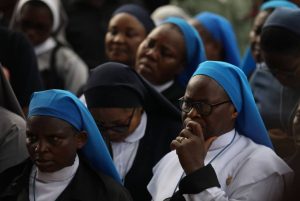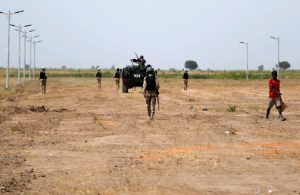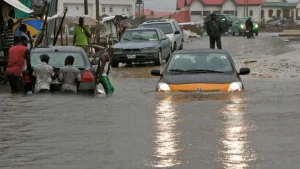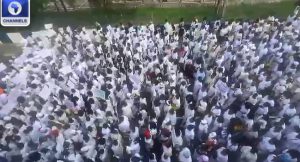
We can’t take it all back”: Zelensky admits limits, stresses diplomatic endgame.
In a stark admission, Ukrainian President Volodymyr Zelensky said his country lacks the strength to fully reclaim Russian-held territories. He emphasized, however, that Ukraine will not legitimize Russia’s claims over the occupied regions.
Read More
Comment
0

NFF publicly mourns ex-coach Chukwu, ignores $128,000 debt owed him
“It is annoying that I toiled so much and these people at the NFA [Nigeria Football Association, which was NFF’s former name] cannot figure out ways of sorting out the money they owe me,” Chukwu said.
Read More
Comment
0

Nigeria vows to protect religious freedom, but realities on the ground tell a different story
After testifying on Christian persecution, Nigerian clergy allege threats; government denies wrongdoing as international concern grows.
Read More
Comment
0

Tinubu only great father to Seyi, he’s Nigeria’s worst president –Eedris hammers President again
“They lied about subsidy, lied about fixing the economy, lied about strengthening the naira. Everything is worse now. If you listen to my song, you’ll know I’m just telling the truth.”
Read More
Comment
0

Landmine explosion claims eight lives in Nigeria
A landmine explosion on Saturday claimed the lives of at least eight passengers traveling along the Maiduguri-Damboa highway in Borno State, northeastern Nigeria.
Read More
Comment
0

Nigeria in Summary – 14 APRIL 2025
Here's a breakdown of some key issues in the public consciousness:
Read More
Comment
0

“Nigeria’s collapse is inevitable, no power on earth can prevent it”- Akogun Tola Adeniyi.
No force on earth can stop Nigeria from collapsing. The collapse is imminent, it is only a matter of time.
Read More
Comment
0

Panic as Lagos braces for worst floods in years
An uneasy calm hangs over Lagos, Nigeria’s commercial hub, particularly on the Island, as residents brace for what experts predict could be one of the worst flood seasons in recent years.
Read More
Comment
0

It’s within the law’: Women rally backing emergency rule in Rivers State
Protests continue in Rivers State following the suspension of Governor Siminalayi Fubara and key state officials by President Bola Tinubu. Monday’s demonstration comes days after a pro-Fubara rally and amid mounting opposition from PDP governors.
Read More
Comment
0

Four dead as police arrests notorious kidnap kingpin in Delta State
The Nigeria Police Force has again recorded significant successes across the country.
Read More
Comment
0